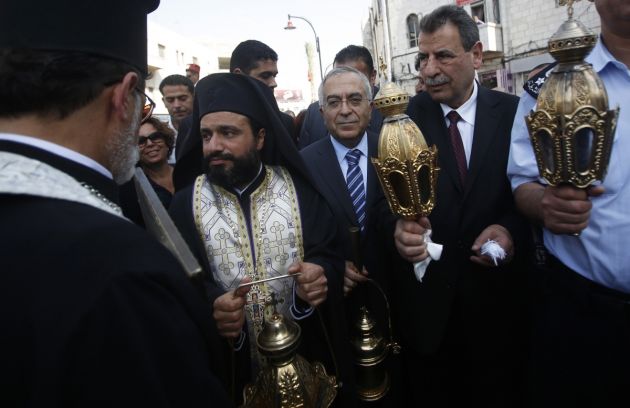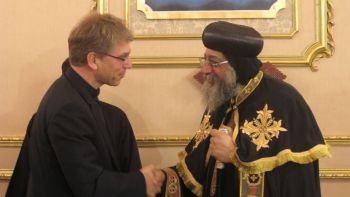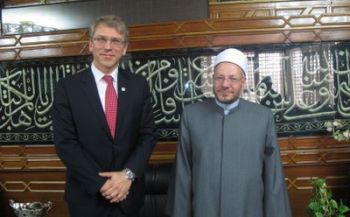Middle East Christians' plight to be focus of international conference

Christians in the Middle East are often caught in uprisings and unstable situations that have left them as a vulnerable minority and in areas; in Syria clergy have been subjected to kidnappings and in Egypt churches and members have been attacked.
They have asked for support from worldwide churches and that is why Middle East Christians are to be the focus of an upcoming conference sponsored by the World Council of Churches and its affiliate, the Middle East Council of Churches.
The conference is set to take place next week in Beirut, Lebanon.

The Geneva-based grouping of more than 500 million Christians said the meeting is part of an ongoing effort by the WCC to achieve peace and justice in the region.
The conference is also meant to be a milestone leading to a focus on the prayer "God of life, lead us to justice and peace" at the meeting of the world council's highest government body, its assembly in South Korea toward the end of the year.
"We are preparing for the WCC's upcoming assembly," said Michael Nseir, program executive for the council's special focus on the Middle East, in a press release.
"Therefore, it is especially important to undertake this pilgrimage toward justice and peace with the churches in the Middle East, and address their challenges with a costly solidarity and a general ecumenical spirit of unity in action.

The themes to be explored at the conference, which will run from May 21 to 25, include power, social injustice, the threat of extremism, and Christian-Muslim relations.
Nseir said that ecumenical Christian perspectives and concerns over the Christian presence in the Middle East differ from those who seek to kindle Islamophobia.
The WCC's efforts toward Middle East justice and peace have been on display in recent weeks.
The WCC's general secretary, Rev. Olav Fykse Tveit, met with senior Egyptian Islamic cleric Grand Mufti Shawki Ibrahim Abdel-Karim in Cairo to discuss relations between different faiths in the country.
Egypt experienced a revolution in February, 2011 which brought the formerly outcast Muslim Brotherhood to power.
Many Christians have said that minorities have been marginalized in Egypt's new constitution.
In addition, there have been complaints of persecution against Coptic Christians.
Furthermore, Tveit has strongly condemned the recent kidnapping of two prominent Orthodox bishops in Syria by an armed group.
He said at the time of their abduction in April that the two men, Archbishop Yohanna Ibrahim and Archbishop Boulos Yazaji, were "well known as actors for peace and justice not only for the Christians of Syria, but also for all the Syrian people."
Tveit will be among the speakers addressing the conference.
Other speakers include Samir Marcos, a Coptic scholar and former assistant to Egpytian President Mohammed Morsi and Afif Safieh, a Palestinian diplomat.
Also speaking are Tarek Mitri, a former Lebanese cabinet minister, who once worked for the WCC, and Cardinal John Onaiyekan, Archbishop of Abuja, Nigeria.
